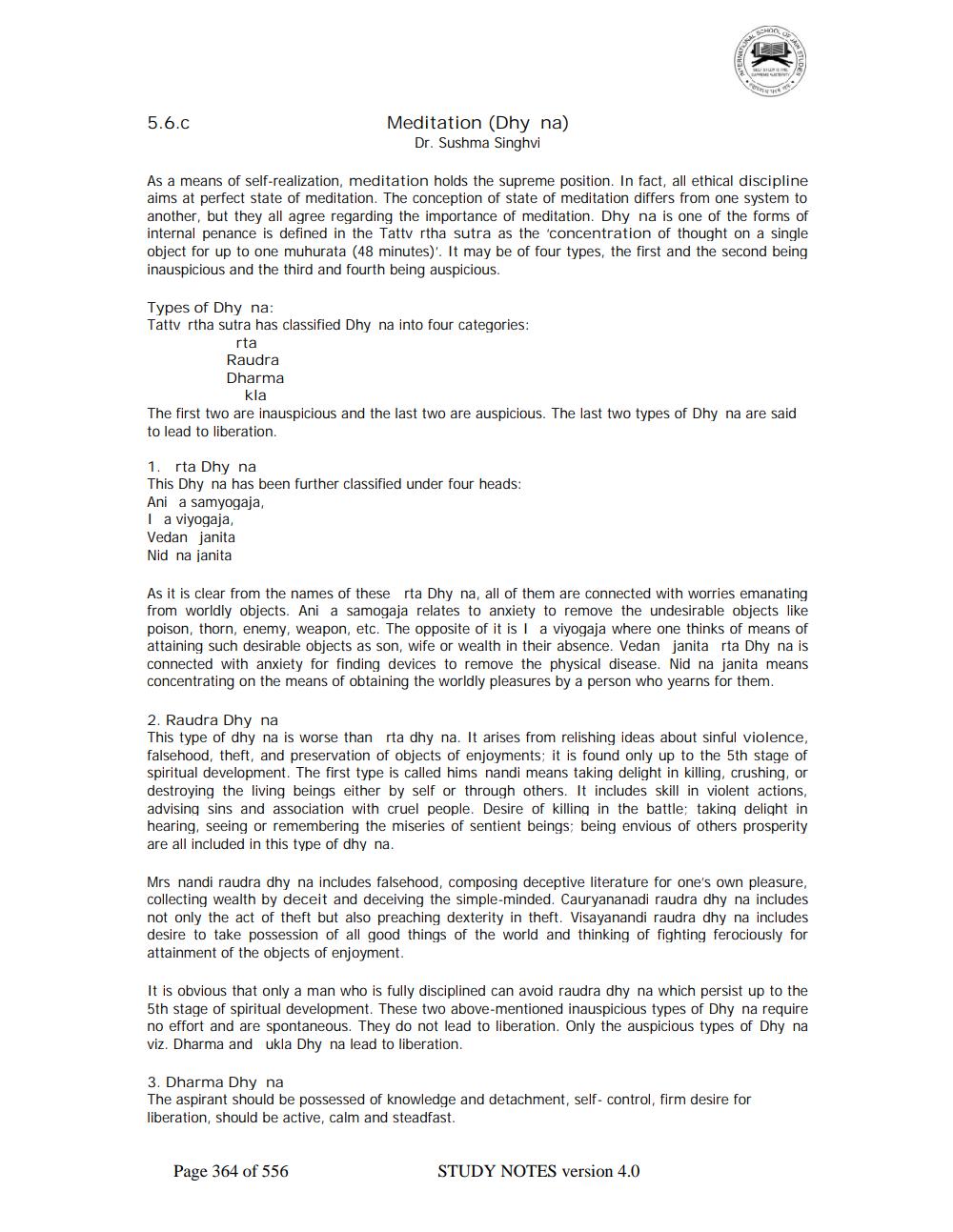________________
5.6.c
Meditation (Dhy na)
Dr. Sushma Singhvi
As a means of self-realization, meditation holds the supreme position. In fact, all ethical discipline aims at perfect state of meditation. The conception of state of meditation differs from one system to another, but they all agree regarding the importance of meditation. Dhy na is one of the forms of internal penance is defined in the Tattv rtha sutra as the concentration of thought on a single object for up to one muhurata (48 minutes)'. It may be of four types, the first and the second being inauspicious and the third and fourth being auspicious.
Types of Dhy na: Tattv rtha sutra has classified Dhy na into four categories:
rta Raudra Dharma
kla The first two are inauspicious and the last two are auspicious. The last two types of Dhy na are said to lead to liberation.
1. rta Dhy na This Dhy na has been further classified under four heads: Ani a samyogaja, I a viyogaja, Vedan janita Nid na janita
As it is clear from the names of these rta Dhy na, all of them are connected with worries emanating from worldly objects. Ani a samogaja relates to anxiety to remove the undesirable objects like poison, thorn, enemy, weapon, etc. The opposite of it is a viyogaja where one thinks of means of attaining such desirable objects as son, wife or wealth in their absence. Vedan janita rta Dhy na is connected with anxiety for finding devices to remove the physical disease. Nid na janita means concentrating on the means of obtaining the worldly pleasures by a person who yearns for them.
2. Raudra Dhy na This type of dhy na is worse than rta dhy na. It arises from relishing ideas about sinful violence, falsehood, theft, and preservation of objects of enjoyments; it is found only up to the 5th stage of spiritual development. The first type is called hims nandi means taking delight in killing, crushing, or destroying the living beings either by self or through others. It includes skill in violent actions, advising sins and association with cruel people. Desire of killing in the battle; taking delight in hearing, seeing or remembering the miseries of sentient beings; being envious of others prosperity are all included in this type of dhy na.
Mrs nandi raudra dhy na includes falsehood, composing deceptive literature for one's own pleasure, collecting wealth by deceit and deceiving the simple-minded. Cauryananadi raudra dhy na includes not only the act of theft but also preaching dexterity in theft. Visayanandi raudra dhy na includes desire to take possession of all good things of the world and thinking of fighting ferociously for attainment of the objects of enjoyment.
It is obvious that only a man who is fully disciplined can avoid raudra dhy na which persist up to the 5th stage of spiritual development. These two above-mentioned inauspicious types of Dhy na require no effort and are spontaneous. They do not lead to liberation. Only the auspicious types of Dhy na viz. Dharma and ukla Dhy na lead to liberation.
3. Dharma Dhy na The aspirant should be possessed of knowledge and detachment, self-control, firm desire for liberation, should be active, calm and steadfast.
Page 364 of 556
STUDY NOTES version 4.0




